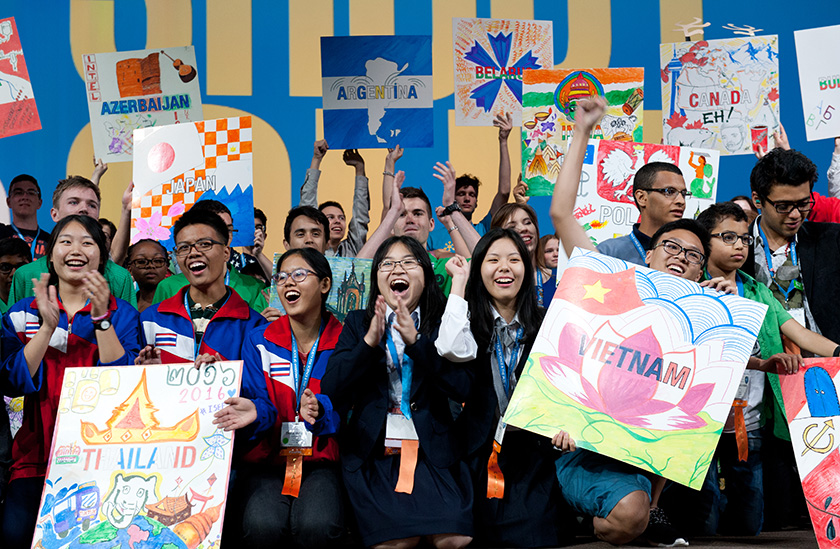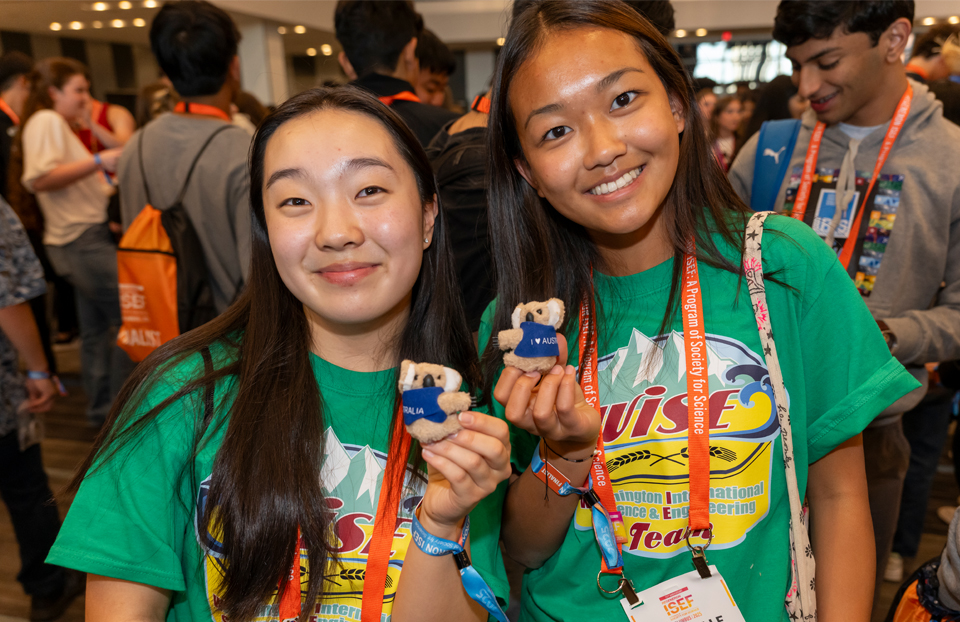Supporting the next generation of scientists, programmers, and educators

As the Society and participants around the world gear up for Intel International Science and Engineering Fair (Intel ISEF) 2017 in Los Angeles, California, we’re highlighting several Special Award Organizations (SAO). These SAO’s honor several Intel ISEF finalists with awards such as tuition scholarships, math software, and more.
One SAO, Wolfram Research, offers Mathematicia software to all finalists and observers (about 2,000 students total) for free. Read our interview with Wolfram Research Event Director Carol Cronin below.
WHY DO YOU SUPPORT INTEL ISEF? WHY ARE SCIENCE FAIRS LIKE INTEL ISEF IMPORTANT: At Wolfram, we believe in supporting the next generation of scientists, programmers, and educators. We all benefit from progress in technological innovation and research.
Our entire organization uses STEM principals and methods daily to advance our technology.
WHY IS IT IMPORTANT FOR WOLFRAM RESEARCH TO SUPPORT STEM: Our entire organization uses STEM principals and methods daily to advance our technology and provide our customers the best product available, whether they be engineers, data scientists, statisticians, or those in non-traditional STEM fields, such as media and communication.
One of our missions is to empower a broad spectrum of today’s youth swiftly to become leading-edge computational thinkers through STEM education, for example.
WHY IS IT IMPORTANT FOR BUSINESSES AND THE GOVERNMENT TO SUPPORT SCIENTISTS OF THE FUTURE: Continued growth and opportunities depend on technological innovation and scientific progress.
At Wolfram, we believe in supporting the next generation of scientists, programmers, and educators.
Students who learn science, math, and computational thinking will continue to use it throughout their lives. Doctors, lawyers, teachers, farmers, whoever. The future of all these professions will be full of computational thinking. Whether it’s sensor-based medicine, computational contracts, education analytics or computational agriculture — success is going to rely on being able to do computational thinking well.
ADVICE FOR YOUNG PEOPLE INTERESTED IN SCIENCE AND MATH: Be persistent in your endeavors, identify problems that need to be solved, and dream big. There are very powerful — and often very clarifying — things that can be done with science, math, computation, and computational thinking.
Students who learn science, math, and computational thinking will continue to use it throughout their lives.
For example, Stephen Wolfram saw a need for advanced mathematical computing and turned it into Wolfram Research, a company on the leading edge of technical computing and innovation. You may have used an iPhone to ask Siri questions such as: “What is a bumblebee’s species? How many grams are in a pound? What airplanes are overhead?” Or you may have used our computational knowledge engine Wolfram|Alpha to help with math homework. This technology is just one result born from Wolfram’s pursuit of computational tools.
ANYTHING ELSE TO ADD: It is our pleasure to support programs like these. We believe in nurturing talent, supporting educational initiatives, such as Intel ISEF and our own summer programs, and advancing technology that defines the computational future.
Intel ISEF 2017 takes place May 14-19. The Special Award Ceremony winners will be announced on May 18.


